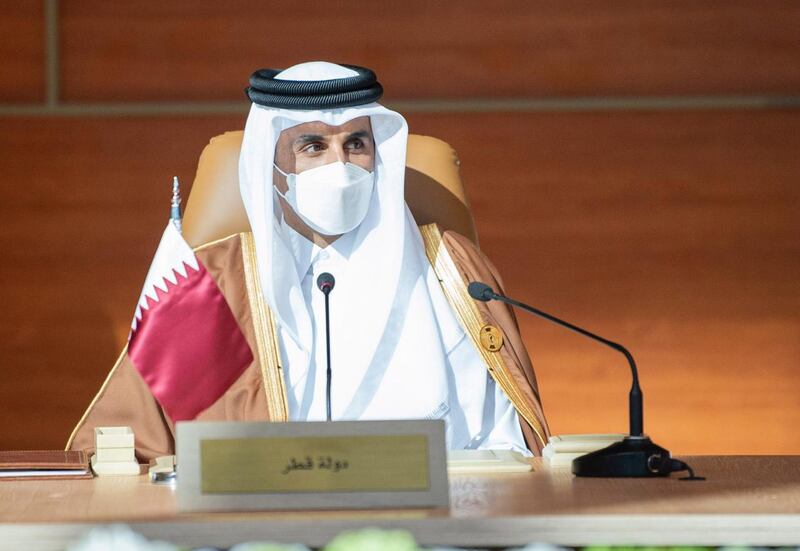Emir Sheikh Tamim Al Thani of Qatar approved an electoral law for the country's first legislative polls, scheduled to be held in October, granting citizens voting rights for the advisory body.
This is taking place a year before the Gulf Arab state hosts the 2022 World Cup.
The law in its entirety was published in the local Al Watan newspaper and is effective immediately.
The vote will be for two thirds, or 30 members, of the 45-seat Shura Council, the law said. The emir will appoint the remaining 15 members.
The council holds legislative authority and approves the country's general budget. It also monitors Qatar's Executive Authority.
Qatar has until now postponed plans for a partially elected Shura Council outlined in the constitution ratified in 2003. Members of the government's top advisory body have since been appointed by the emir.
“This is an important step towards strengthening Qatari advisory traditions and developing the legislative process with wider citizen participation,” Sheikh Tamim said in his address at the opening of the Shura Council.
It was not immediately clear what eligibility requirements, such as a minimum age, Qatari citizens would have to meet to be able to vote.
Egypt and Libya ambassadors
Qatar's Emir also named ambassadors to Egypt and Libya, his office said, as the Gulf state moves to improve ties with some regional states.
Salem bin Mubarak Al-Shafi was named envoy to Egypt, while Khalid Mohammed Al-Dosari was appointed for Libya.
Egypt, Saudi Arabia, the United Arab Emirates and Bahrain agreed in January to end a dispute that saw them boycott Qatar since 2017.
Cairo had in June appointed an ambassador to Qatar, following a similar move by Riyadh. The UAE and Bahrain have yet to restore diplomatic ties.
Qatar had closed its embassy in Libya in 2014, when many foreign missions in Tripoli shut down as the country split between warring administrations.
Since fighting in Libya ended last summer, the factions have accepted a new unity government mandated to unify institutions and prepare for elections in December.
Qataris account for about 10 per cent of the approximately 2.7 million people living in the gas-rich state, most of whom are foreign workers.
Gulf Arab states Saudi Arabia, Oman and the UAE also have advisory councils.
Kuwait and Bahrain each have elected parliaments.







